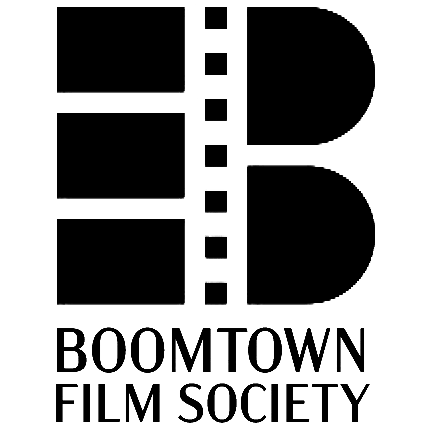Jason A. Raschen is a Houston-based award-winning film producer and a permanent fixture in Houston’s independent film scene. He has lived in the Houston area for over 25 years. His films have been selected and have screen at numerous film festivals around the world, including The Houston Cinema Arts Festival. His body of work includes the music videos “The Ninth Level” by Two Star Symphony & “Y Aqui Estoy” by Katanah; the web series “Clubmates”; and the short films “My Bully”, “To Beard Or Not To Beard” & “Acid Test”. Jason is a proud member of the Houston Cinema Arts Society, the Museum of Fine Arts Houston Film Buffs Group, 14 Pews and S.W.A.M.P. (Southwest Alternate Media Project).”
 How do you balance making a living with making something that you’re personally passionate about?
How do you balance making a living with making something that you’re personally passionate about?
I know a lot of people take the first few jobs just to get experience or because they need to make money to pay the bills. A lot of people’s bread and butter ends up being reality TV or commercials (recently, we have had HG TV film here a lot). A lot of times it’s work as gaffers, or DPs, or production managers, and people use these things to gain experience for bigger productions. As for myself, I’ve only done jobs like that a couple times for the paycheck. As far as doing it to make a living, you have to be extremely passionate about the project. Especially if you know it’s going to be a long two or three weeks shoot. Because you’re going to be working 10 to 12 hours a day. If you’re just doing it for the paycheck, that can be great for the first week. But after a few of those 10 or 12 hour days, the enthusiasm is going to die. You’re giving 110%, and you have to do that every day to create quality film.
I know you are really involved online social media and the digital landscape, How does that world impact your work or strategy for filmmaking?
I do a lot of social media, as far as posting on Facebook, Twitter, Instagram, and even, occasionally, LinkedIn. It’s good because people might know that you are a Film Producer, but they don’t know exactly what it is that you do. It’s a good way to promote yourself, versus hiring a PR firm. But a lot of people use it to say, “hey, I’m shooting something with my brother on my goPro, so we’re professional filmmakers,” which is not really the case, so you have to be careful with how you present yourself. It’s kind of worked for me to gain a little bit of exposure, because people say, “Hey, I saw some of the stuff that you did for Acid Test,” or “I saw one of your music videos that was really good.” So I can be productive but you can spend a little too much time on there. I sometimes wish I could be more like Christopher Nolan, who doesn’t have any social media presence, which is probably why he gets so much done. It’s kind of a double edge sword ‘cause People can spend too much time posting on all these different outlets, when you can probably be spending time doing something. One of the things I really try to do with social media, especially Twitter, is to inform people in the Houston area about upcoming workshops, film projects, events, or opportunities that exist. I want to be a resource to help the Houston area film industry.
What is one of the easier things to overlook in short film production?
Preproduction, honestly. Because filmmakers can spend so much time figuring out this is the camera we’re going to use and this is how going to shoot something, but they don’t spend a lot of time on how strong the script is. I think the whole pre-production aspect is overlooked, because they just want to focus on getting the gang together to go out and shoot something. Then, they don’t work on getting the location ok’ed, getting stuff signed, and then, in post production, you see how average or below average the quality of the film is. I think if you put 90% of your work in pre-production, then the shoot itself is fairly easy, and you won’t have as much trouble in post-production. That’s the aspect I think filmmakers need to focus more on: the planning.
You’ve been doing more public speaking and holding workshops, in fact, you had one this past weekend in Houston. Is training up-and-coming filmmakers part of your goal as an artist? Is it something that you are passionate about, or is it something you’re doing because it’s available, and people are asking you to do it?
It is a passion of mine, because I started trying to be the next A-filmmaker back in 2004, and I just ran into a lot of walls. People wouldn’t return my calls and stuff like that, and it was frustrating, so I quit. I finally came back three years ago and networked a lot and learned a lot since then. So it’s my passion to help filmmakers, so they don’t run into the same pitfalls that I fell into. It’s even harder to be a filmmaker now whether it’s short films, music videos, or the main goal, feature films, because there’s this oversaturation of films being put out. So for me, if I can just help the up-and-coming filmmaker a little bit, so they don’t fall into same trap I did and waste the next three years of their life trying to figure it out, that would be very rewarding for me.
How do you deal with criticism of your work? At festivals you put yourself out there, you’re being vulnerable, and people can tear down what you do. And I know you have won a lot of awards, but I am sure that for every award that you’ve won you’ve been rejected or turned down by many others. How do you, as an artist, balance rejection with praise?
You have to understand that everyone has different tastes. If people are being critical of your film, you have to look at exactly what they’re saying, and taking note of that. It might just not be their cup of tea. For instance if the person is a fan of the horror genre, they might not be that interested in a coming of age drama that’s set in Mexico. So, you have to see what this person’s taste is. Also, that year they might be programming a certain type of film, and although there’s nothing wrong with your movie, it may just not fit with that festival.
A perfect example of this was back in 2010. The filmmaker of a movie called the God of Love submitted to all the major film festivals and got rejected, but he did submit it for consideration for the Academy Awards for live action short. And not only did it get nominated, but he won it. So for whatever reason the Academy deemed that movie good enough, but the other film festivals did not think it was good enough… don’t know why, maybe it was just timing and stuff. But the point is to look at it with open eyes when someone does have some criticism of it. Learn from your project, what didn’t work, why didn’t people connect with the story, and you can use that for your next project. Never take it personally. For example I love Renaissance art, but a lot of my friends cannot stand Renaissance art. They prefer more modern or postmodern art, which is not my cup of tea. So art is very subjective. You can’t take it personally.
If you could make any movie right now, no budget, no casting, and no production restraints, what would you make?
I am passionate about Houston, so I would probably do a large ensemble piece, set in Houston. There’s so many great actors from Houston, like Lee Pace, Jim Parsons, Matt Bomer, Allison Tolman, and some other great actors that have roots to Houston. As far as the topic, it would be a drama, about the various aspects of the oil and gas business, in the same vein as Traffic, diving into the different aspects of it and the moral ambiguity you find in today’s business culture about what is right and what is wrong, especially with regards to the community, environment, and core beliefs (because although we live in the “Bible Belt” we find that our spiritual beliefs don’t often guide our business practices).
You can see more of Jason Raschen’s Producer work here.
Twitter Profile: @BeIrraschenal




